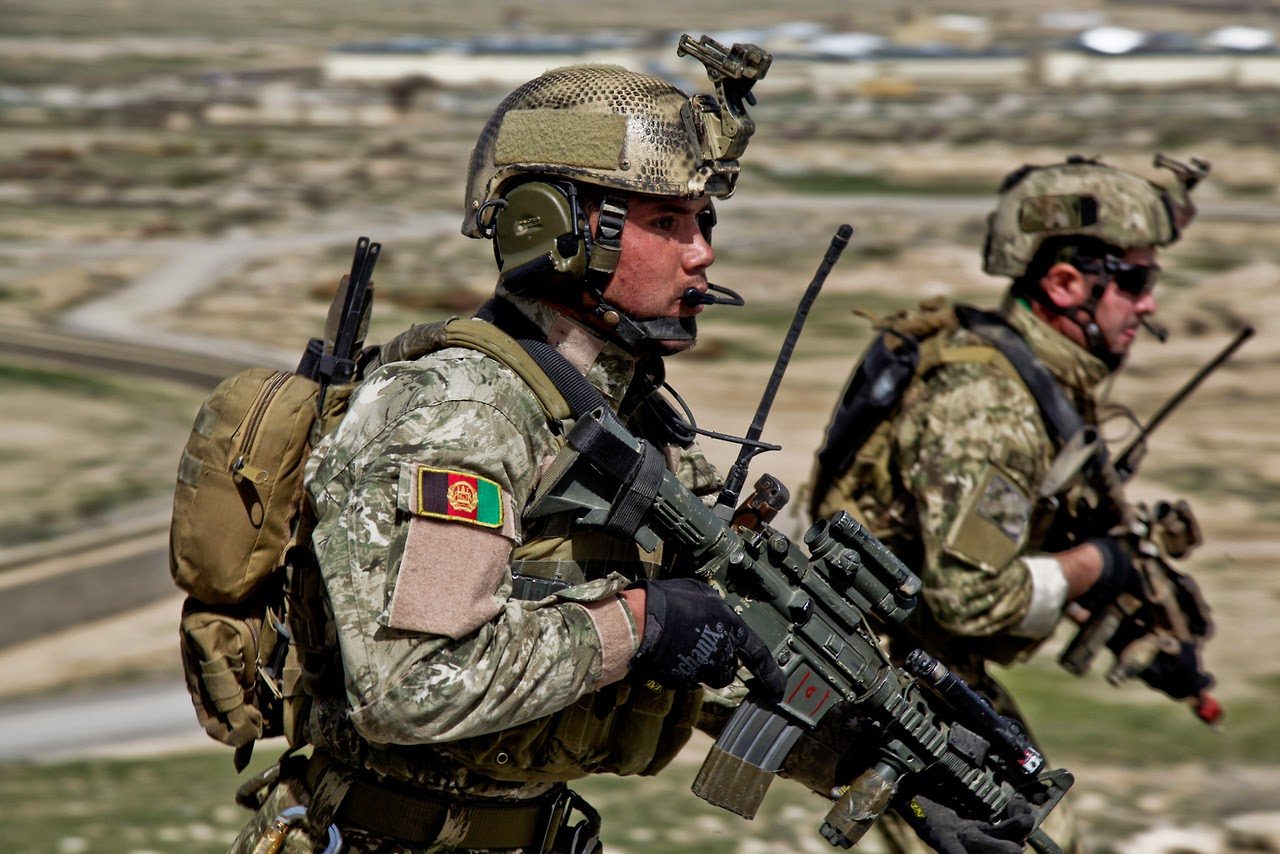The Taliban captured three additional Afghan provinces, adding on to the lists of territories it has captured over the past few months.
Qatar is hosting “extended Troika” meetings on Tuesday and Wednesday in efforts to resume stalled Afghan peace negotiations as violence escalated across the country with clashes between government forces and the Taliban.
According to Voice of America [VOA], the meeting will be attended by Washington’s special representative for Afghanistan, Zalmay Khalilzad, as well as his counterparts from Russia, China and Pakistan.
Tuesday’s meeting will be attended by Russia, the United Nations [UN] and the United States.
Sources at the Pakistani foreign ministry told VOA that both meetings will be seeking “a possible common ground” between the warring factions as the Taliban “have started occupying provincial capitals”.
The American media outlet also reported that Pakistan’s special envoy for Afghanistan, Muhammad Sadiq, and the country’s ambassador to Kabul, Mansoor Khan, will also be among the attendees at the meetings in Doha.
EU denounces power grab as officials meet Afghan government, Taliban delegations in Qatar
The latest Troika meeting is the second to take place since April, which saw diplomats on the negotiating team release a 14-point joint statement on the ongoing Afghan peace process.
The Troika representatives also called on the Taliban to abide by its commitment to reduce violence, including “preventing terrorist groups and individuals from using Afghan soil to threaten the security of any other country”.
Rising tensions
Fighting between Afghan government forces and the Taliban has alarmingly increased since US President Joe Biden’s April announcement to withdraw US and NATO forces by 11 September this year.
Since then, the Taliban has been capturing dozens of districts in Afghanistan as well as border crossings, including Herat in the west and Kandahar in the south – the fourth-largest and the second-largest cities in the country.
On Sunday, the Taliban seized three provincial capitals in a single day, including the strategic northeastern city of Kunduz, Sar-e-Pol and Taloqan.
According to Reuters, Taliban fighters captured key government buildings in Kunduz, a city with a population of 270,000 located at the gateway to mineral-rich northern provinces and Central Asia.
“Heavy clashes started yesterday afternoon. All government headquarters are in control of the Taliban, only the army base and the airport is with ANDSF [Afghan security forces] from where they are resisting the Taliban,” said Afghan lawmaker, Amruddin Wali.
Health officials in Kunduz said 14 bodies, including women and children, in addition to more than 30 injured people, have been taken to hospital.
Most recently on Monday, fighters suspected to be from the Taliban killed an Afghan radio station manager in Kabul and kidnapped a journalist in southern Helmand province, adding to a list of recent targeted attacks on media workers.
Gunmen shot Toofan Omar, who manages Paktia Ghag Radio and also works as an officer for NAI, a rights group supporting independent media in Afghanistan.
“Omari was killed by unidentified gunmen…he was liberal man…we are being targeted for working independently,” said Mujeeb Khelwatgar, the head of NAI, noting that some 30 journalists and media personalities have been killed, wounded or kidnapped this year alone.
Taliban fighters also kidnapped local journalist Nematullah Hemat from his home in Lashkar Gah.
“There is just absolutely no clue where the Taliban have taken Hemat…we are really in a state of panic,” said Razwan Miakhel, head of private TV channel, Gharghasht TV where Hemat worked.
Meanwhile, the Taliban said it has no knowledge of the killing nor the kidnapping.
That came just days after the militant group on Friday assassinated the Afghan government’s top media and information officer, Dawa Khan Menapal.
The Taliban claimed responsibility for the killing, with a spokesperson for the insurgent group saying that Menapal was “killed in a special attack” and “was punished for his actions.”
In July, Reuters journalist Danish Siddiqui was also killed while covering Afghan-Taliban fighting near a border crossing with Pakistan.
The New York Times [NYT] reported that Siddiqui’s body was mutilated while he was in Taliban custody. He was unrecognisable by medics when taken to hospital.
Taliban spokesman Zabihullah Mujahid denied the group’s involvement in the 38-year-old journalist’s killing, despite the insurgents being in control of the area Siddiqui was covering at the time.
Photographs obtained by the Times also showed what appeared to be the Taliban’s fighters standing next to Mr. Siddiqui’s body, which was intact at the time.
Earlier, the UN’s Assistance Mission to Afghanistan [UNAMA] said up to 2,400 Afghan civilians were killed or injured in May and June alone, the highest number for those two months since it started recording data in the country in 2009.
The UNAMA also warned Afghanistan is expected to witness its highest number of recorded civilian casualties in a single year if there is no significant de-escalation in the country to end the ongoing violence.
Follow Doha News on Twitter, Instagram, Facebook and Youtube







